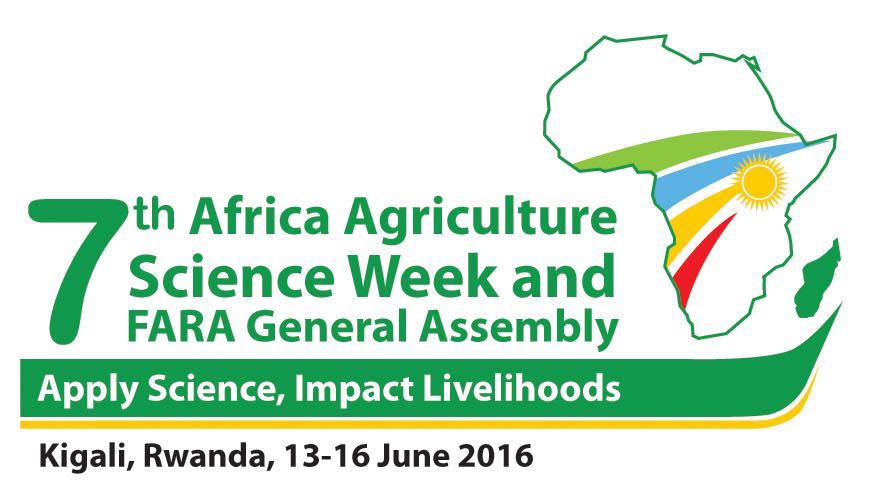
As part of the 7th FARA Science Week, the International Institute of Tropical Agriculture (IITA) is facilitating the Thematic Session on “Sustainable Productivity Growth”. This session is scheduled for Tuesday 14 June 2016 (http://faraafrica.org/aasw7/the-7th-aasw/program/). This Concept Note introduces the session, and also invites papers for oral presentation.
Rationale
Growths in human population and food consumption are expected to increase global food demand of between 70% and 100% by 2050. Sustainable productivity growth or sustainable intensification of agricultural systems in developing countries is perceived essential to meet this growing global food demand. Especially in regions where pressure on agricultural land is high, and soil fertility and yields are low, sustainable productivity growth can enhance food security and economic development. The literature on sustainable productivity growth in developing countries generally focuses on generating more produce or income from existing agricultural land. To achieve that objective, sustainable productivity growth requires (1) productivity innovation (e.g. improved varieties, fertilizer, new crop management practices), (2) Natural Resource Management (NRM) innovation (e.g. reforestation and erosion control), and (3) institutional or socio-organisational innovation (e.g. social infrastructure, policy, partnerships, access to finance, services, inputs and markets). These different types of innovations need to emerge in an integrated way, making smart use of available agro-ecological, human and financial resources across different systems levels.
In their session, IITA wishes to approach sustainable productivity growth from a systems perspective. This implies that they are looking for contributions that seek to understand the complex interrelations between biophysical, technological, socio-cultural, economic, institutional and political problem dimensions of productivity growth across farm, village, district, regional and national levels, and how these are shaped by and beneficial for different stakeholder, gender and age groups.
Guidelines for abstracts
- For the session IITA is soliciting four oral presentations of10 minutes each.
- The selected speakers are expected to participate in a facilitated panel discussion at the end of the Session.
- IITA is soliciting abstracts under four themes:
- Innovations to improve 'whole farm' productivity growth in smallholder systems;
- Trade-off and synergy analysis of sustainable productivity growth for different types of farmer, gender and age groups;
- Enabling institutional innovations for sustainable intensification of agricultural systems (policy, development or business models);
- Successful scaling of sustainable productivity growth innovations (integrated socio- technical systems).
- Abstracts (of max 600 words) should contain the follow sections: (1) Problem definition, (2) Research methodology, (3) Results, (4) Analysis and discussion, (5) Conclusions and implications for policy and development.
- Authors should indicate under which of the above four themes they are submitting their abstract.
- Please send your abstracts to Dr Marc Schut (m.schut@cgiar.org) before Friday 27 May, 5pm. You will be informed on our decision before 4 June 2016.
Please refer to the pdf below for the abstract template.
For more information on the Africa Agriculture Science Week (AASW) and FARA General Assembly, please visit the FARA website or at the dedicated site.
